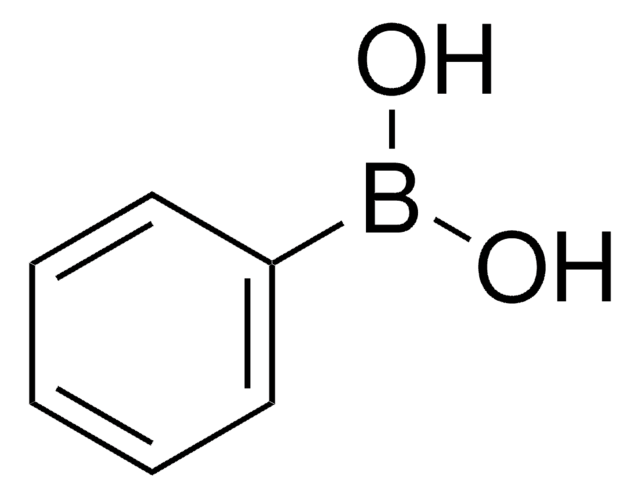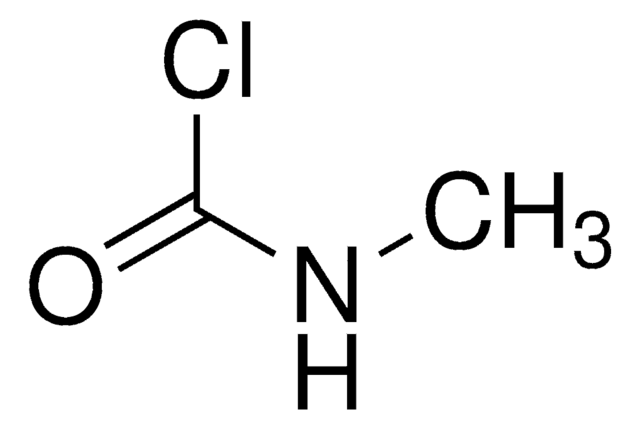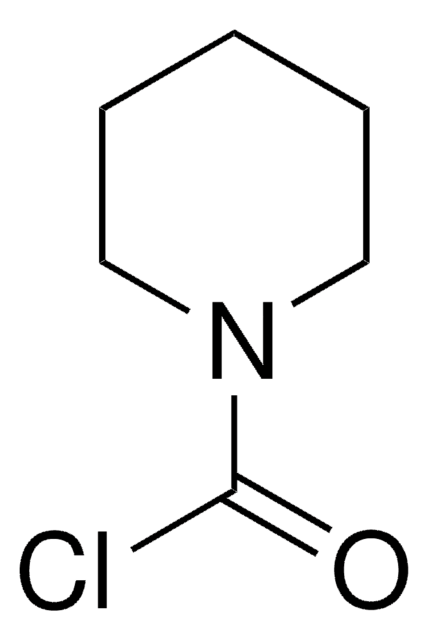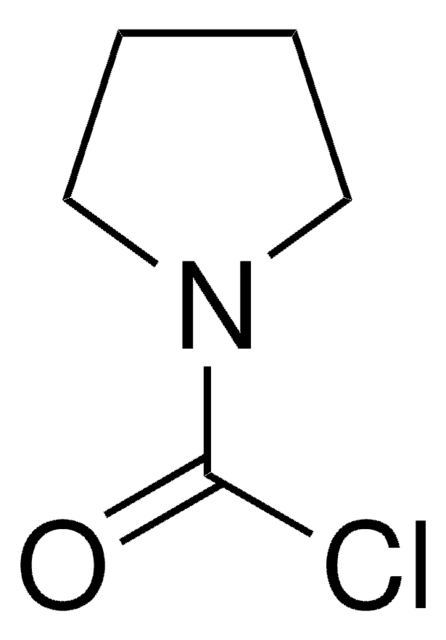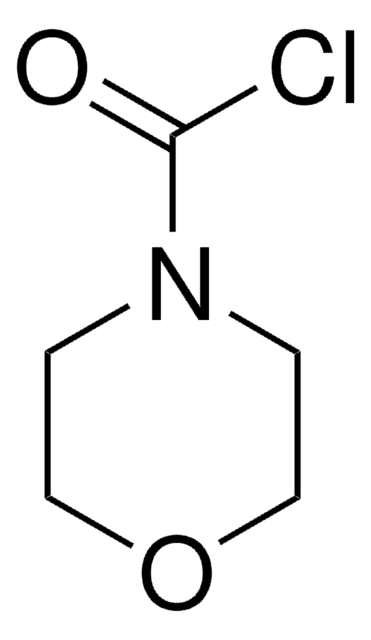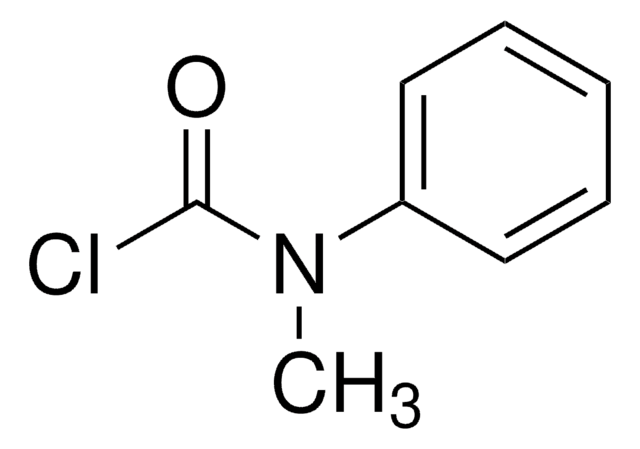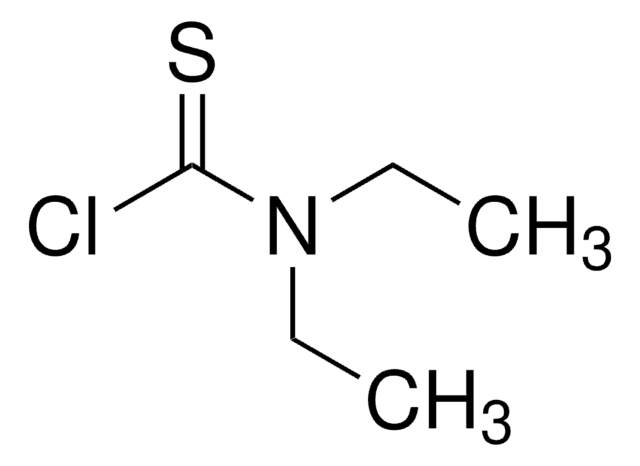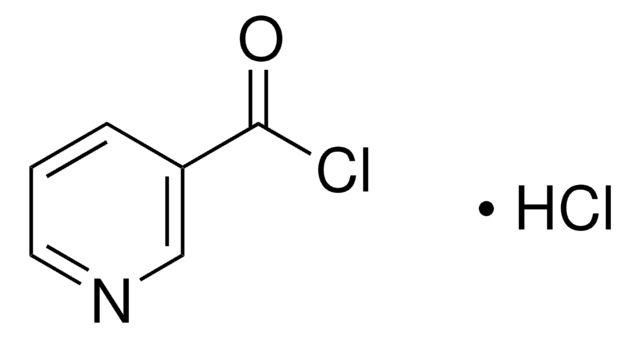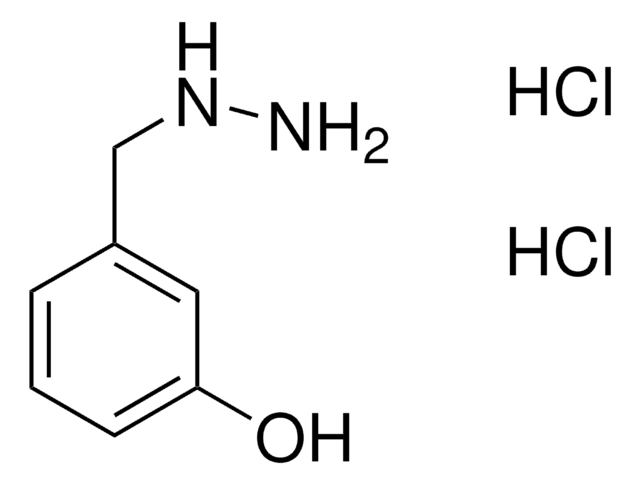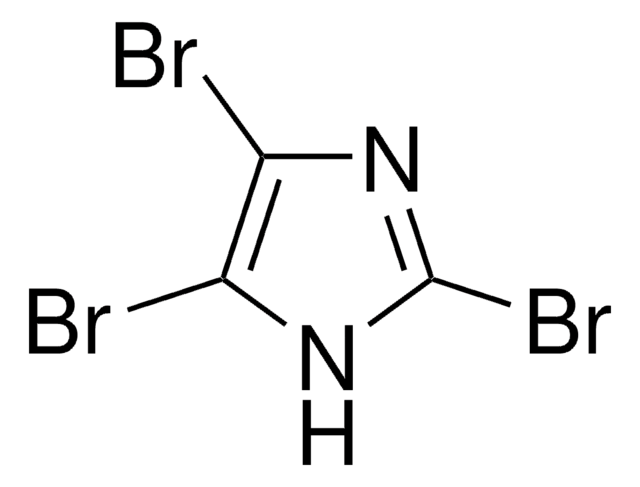D152803
Dimethylcarbamyl chloride
98%
Synonyme(s) :
Chloroformic acid dimethyl amide, Dimethylcarbamoyl chloride
About This Item
Produits recommandés
Niveau de qualité
Essai
98%
Forme
liquid
Indice de réfraction
n20/D 1.453 (lit.)
pb
167-168 °C/775 mmHg (lit.)
Pf
−33 °C (lit.)
Densité
1.168 g/mL at 25 °C (lit.)
Chaîne SMILES
CN(C)C(Cl)=O
InChI
1S/C3H6ClNO/c1-5(2)3(4)6/h1-2H3
Clé InChI
YIIMEMSDCNDGTB-UHFFFAOYSA-N
Catégories apparentées
Application
- Disubstituted carbamates from benzylphenols.
- 2-Cyanoisonicotinamide by reacting with isonicotinic acid N-oxide and zinc cyanide. This method was adopted to synthesize a novel xanthine oxidoreductase inhibitor.
- Acetylcholinesterase (AChE) and serotonin transporter (SERT) dual inhibitors.
Mention d'avertissement
Danger
Mentions de danger
Classification des risques
Acute Tox. 3 Inhalation - Acute Tox. 4 Oral - Carc. 1B - Eye Irrit. 2 - Skin Irrit. 2 - STOT SE 3
Organes cibles
Respiratory system
Code de la classe de stockage
6.1C - Combustible acute toxic Cat.3 / toxic compounds or compounds which causing chronic effects
Classe de danger pour l'eau (WGK)
WGK 3
Point d'éclair (°F)
179.6 °F - closed cup
Point d'éclair (°C)
82 °C - closed cup
Équipement de protection individuelle
Faceshields, Gloves, Goggles, type ABEK (EN14387) respirator filter
Listes réglementaires
Les listes réglementaires sont principalement fournies pour les produits chimiques. Seules des informations limitées peuvent être fournies ici pour les produits non chimiques. L'absence d'indication signifie qu'aucun des composants n'est répertorié. Il incombe à l'utilisateur de s'assurer de l'utilisation sûre et légale du produit.
EU REACH Annex XVII (Restriction List)
Faites votre choix parmi les versions les plus récentes :
Déjà en possession de ce produit ?
Retrouvez la documentation relative aux produits que vous avez récemment achetés dans la Bibliothèque de documents.
Les clients ont également consulté
Global Trade Item Number
| Référence | GTIN |
|---|---|
| D152803-5G | 4061836690021 |
| D152803-100G | 4061833560105 |
| D152803-500G | 4061836696221 |
Notre équipe de scientifiques dispose d'une expérience dans tous les secteurs de la recherche, notamment en sciences de la vie, science des matériaux, synthèse chimique, chromatographie, analyse et dans de nombreux autres domaines..
Contacter notre Service technique